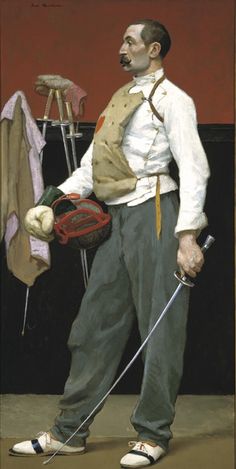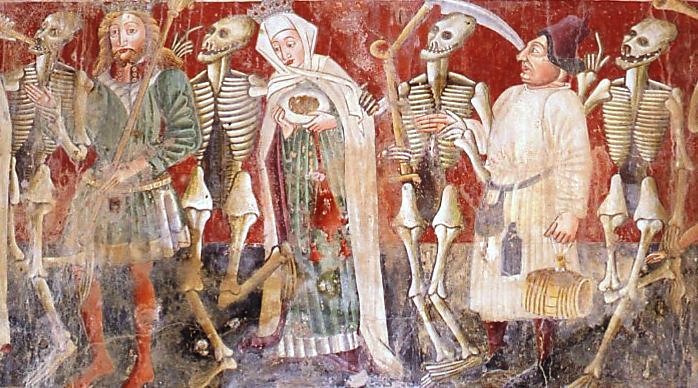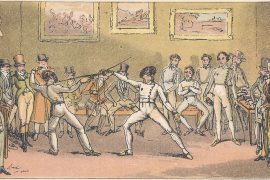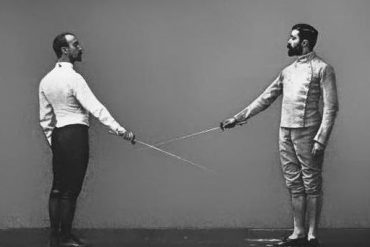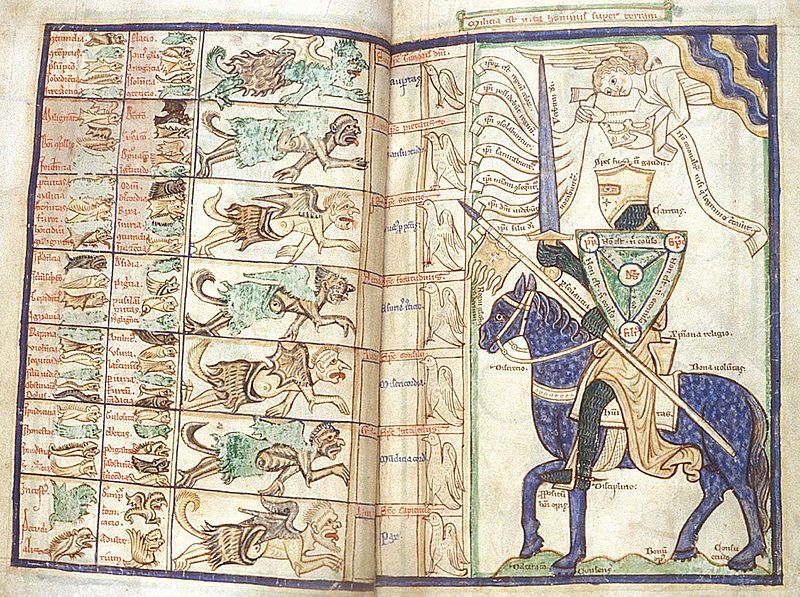
It’s a relevant question. Why do we even engage in historical fencing in the first place? It’s not to become the most efficient fighter in the modern world, at least. But perhaps the true purpose of fencing never was entirely to create killing machines and always had a component of self-development through martial virtues.
Regardless of whether that is true historically, I firmly believe we can view it like that today. And through the study and practice of historical fencing, we can gain a greater appreciation for the past’s culture and values as we simultaneously develop the mental and physical skills we need to face the challenges of modern life.
The cardinal virtues: timeless values for personal development and growth
With that perspective, we also become custodians of history. Not just through the skills we develop or the academic knowledge, not even just through our understanding of history. But also because we embrace values and virtues that our ancestors embraced and bring them into the modern world as we start to understand that there is wisdom and guidance in these values even today. These values have survived through the ages, and today they are perhaps more relevant than ever when so much is relativized.
The cardinal virtues are, perhaps, one of the clearest expressions of such values. They go back to antiquity but have been adopted throughout the periods that we study. They were accepted by the Church and lived on in philosophy. They influenced chivalric values and have guided people around the world through time. So clearly, there’s something there to be learned from. They are the foundation of personal integrity and character and provide us with the guidance we need to live a good and virtuous life.
So, what are they?
Prudence: the virtue of practical wisdom and good judgment
Prudence is the virtue of practical wisdom and good judgment. It is the ability to think and act in a way that is consistent with our values and goals, and to make good decisions. St. Thomas Aquinas wrote (following Aristotle) that prudence is the ”right reason in action”. It is not to be confused with timidity, but as the thing which drives the other virtues (the charioteer of virtues, or Auriga virtutum). It guides the other virtues by setting rule and measure and it is Prudence that guides our judgment of conscience.
Justice: the virtue of fairness
Justice, on the other hand, is the virtue of fairness. It is the ability to treat others with respect and to uphold the rule of law. Being honest, righteous and honourable is foundational for proper behaviour in play, competition and life in general. Still, it is a highly misused word in our day, and as a virtue, it is sorely lacking in a world where slander, mob mentality, and lies reign supreme.
Temperance: the virtue of self-control and moderation
Temperance, meanwhile, is the virtue of self-control and moderation. It is the ability to resist temptation and maintain a balanced and healthy lifestyle. We should, as historical fencers, naturally strive to achieve balance and moderation in life and training. This includes self-control and Temperance in all aspects of our persons.
Fortitude: the virtue of courage and perseverance
Finally, Fortitude is the virtue of strength, courage and perseverance in the face of hardship. It is the ability to face adversity and overcome obstacles with determination and resilience. If Temperance relates to not overdoing the good things, Fortitude is the ability to overcome hardships. It’s where the mettle is tested, and it is closely tied to discipline.
The 4th-century theologian, St Ambrose, wrote: ”Fortitude is not lacking in courage, for alone she defends the honour of the virtues and guards their behests. She wages an inexorable war on all vice, undeterred by toil, brave in the face of dangers, steeled against pleasures, unyielding to lusts, avoiding covetousness as a deformity that weakens virtue”.
In other words, Ambrose says that Fortitude is to have the courage, strength and firmness in the face of assaults of all kinds and the willingness to abandon pleasures and comfort and instead make a moral choice.

Promoting the cardinal virtues in your historical fencing club: benefiting members and the community.
But how do these virtues relate to the world of historical fencing? The connection may not be immediately obvious, but when we look more closely, we can see that the cardinal virtues are essential for success in the world of fencing. Beyond their truth relating to life in general, that is.
As historical fencers, being prudent means embracing good judgment and making decisions with the virtues as a guide. But being prudent in a fencing match also means not being too rash.
Justice is also important in fencing, as it ensures that we treat our opponents respectfully and fairly. In a sport that relies heavily on rules and regulations, we need to be able to uphold the rule of law and treat others as we would want to be treated. Justice allows us to do that by helping us to act with fairness and integrity. In terms of how we are respectful to other fencers and not spread lies, this is indeed something we should wish that the community would embrace.
Temperance, meanwhile, is essential for maintaining a healthy lifestyle. A sound mind in a sound body should naturally be a guiding principle for all fencers and athletes.
And the sound body and the discipline of making good choices also relate to strength. This is naturally important for fencers, and within this concept, we include physical strength and good health, but also competence, discipline, courage, and valour.
Meaning and usefulness
In conclusion, promoting traditional values and the cardinal virtues in your historical fencing club is not just a noble and worthwhile endeavour but also a practical and necessary one. By fostering a sense of community and belonging based on shared values and a common purpose, you can help your students become better, more virtuous people. And by positively contributing to society, you can help preserve and celebrate the rich cultural heritage of historical fencing and contribute to the ongoing dialogue about the role of virtues in our modern world.
But perhaps the most important reason to promote traditional values and the cardinal virtues in your historical fencing club is the fact that we only have precious little time on this planet. As the ancient Greek philosopher, Socrates wrote: “the unexamined life is not worth living.” By examining our lives and values, we can better understand who we are and what we want to achieve. And by striving to live a virtuous life, we can make the most of our time on earth and leave a positive legacy for future generations.”
I speak from personal experience when I say that historical fencing has been a powerful force for personal growth and development in my own life. Through my study and practice of past martial arts, I have gained a greater appreciation for the culture and values of my ancestors. I believe this has helped me develop the mental and physical skills I need to face the challenges of modern life.
So, if you want to positively impact your family, your friends, and your community, consider promoting traditional values and the cardinal virtues in your historical fencing club. It is a rewarding and fulfilling endeavour that will enrich the lives of those around you, and it is a powerful way to make the most of your influence as an instructor guided by the people who came before us.

